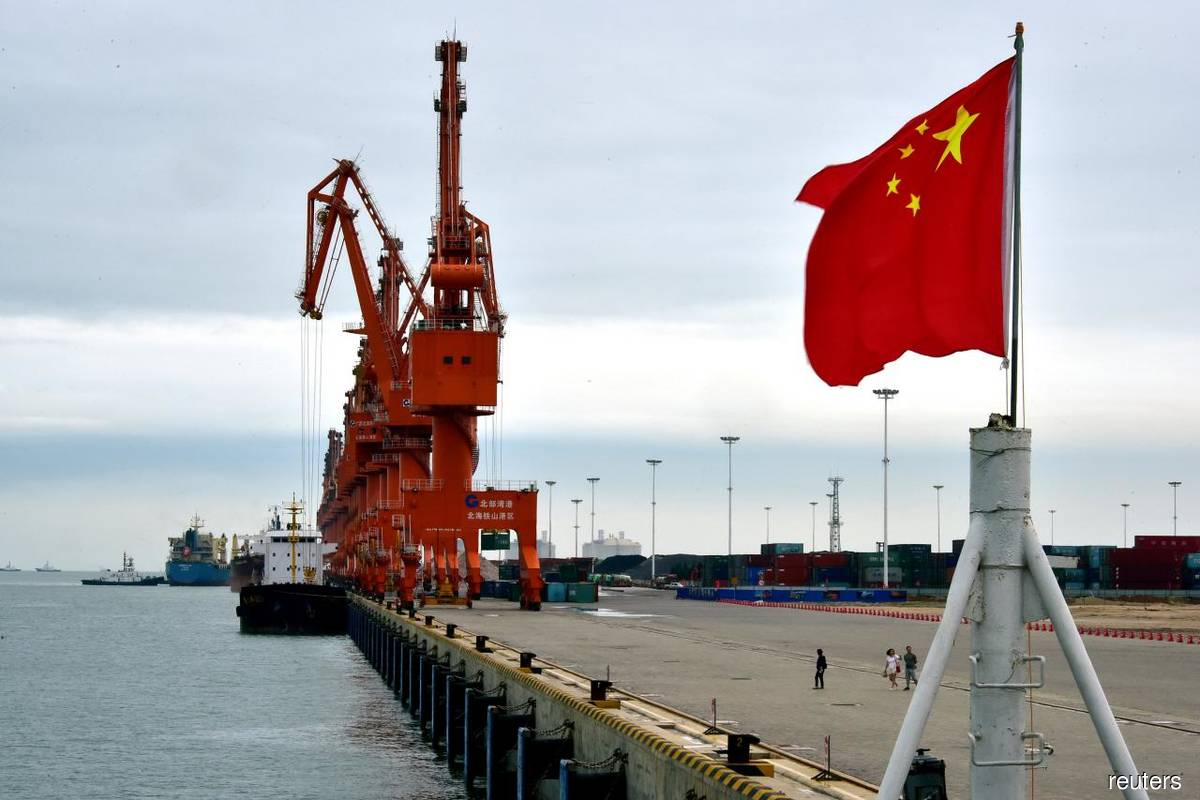Malaysia to continue to cooperate with RCEP members despite impact of China’s zero-Covid policy, says Azmin
 Malaysia will continue to establish cooperation in the areas of diplomatic, trade and investment relations with Regional Comprehensive Economic Partnership (RCEP) members, despite the constraints and challenges, following China’s implementation of its zero-Covid policy.
Malaysia will continue to establish cooperation in the areas of diplomatic, trade and investment relations with Regional Comprehensive Economic Partnership (RCEP) members, despite the constraints and challenges, following China’s implementation of its zero-Covid policy.
在中国实施零冠状病毒政策后,尽管存在限制和挑战,马来西亚将继续与区域全面经济伙伴关系(RCEP)成员在外交、贸易和投资关系领域建立合作。
Citing many reports and studies that have already been published, Senior International Trade and Industry Minister Datuk Seri Mohamed Azmin Ali agreed that China's zero-Covid policy had led to a moderation in trade.
国际贸易和工业高级部长Datuk Seri Mohamed Azmin Ali援引许多已经发表的报告和研究,同意中国的零新冠政策导致贸易放缓。
“Of course, the movement [controls] and closure of borders have an impact on the facilitation of trade and investment between China and RCEP member countries.
“当然,流动[控制]和边境关闭对中国与RCEP成员国之间的贸易和投资便利化产生影响。
“However, if we look at the trade performance of our country for June, it increased by 43.4% [year-on-year] to RM270.39 billion. [As for our] trade with China, which is also a member of the RCEP, [we have] recorded a double-digit growth for 19 consecutive months,” he said.
“但是,如果我们看一下我国 6 月份的贸易表现,[同比] 增长 43.4% 至 2703.9 亿令吉。[至于我们]与也是RCEP成员的中国的贸易,[我们]连续19个月录得两位数增长,”他说。
Azmin said this in Parliament on 27th July 27 in reply to a supplementary question from Datuk Darell Leiking (Warisan-Penampang), who wanted to know the impact of China's zero-Covid policy on RCEP partners.
Azmin 7 月 27 日在国会回应Datuk Darell Leiking(Warisan-Penampang)的补充问题时说,他想知道中国的零冠状病毒政策对 RCEP 伙伴的影响。
Darell, who served as the international trade and industry minister during the Pakatan Harapan administration, initially asked about the impact on the country's trade since the RCEP came into effect in Malaysia last March, and the industries currently being prioritised by the government.
在希盟执政期间担任国际贸易和工业部长的Darell最初询问了自去年 3 月 RCEP 在马来西亚生效以来对该国贸易的影响,以及政府目前优先考虑的行业。
“As Malaysia only enforced the agreement last March, it is currently too early to assess the impact of the RCEP on the country's trade,” said Azmin, who is also the Member of Parliament for Gombak.
“由于马来西亚仅在去年 3 月才执行该协议,目前评估 RCEP 对该国贸易的影响还为时过早,”同时也是鹅麦议会议员的Azmin说。
The RCEP came into force on 1st Jan this year, with Malaysia's participation coming into force on 18th March.
RCEP于今年1月1日生效,马来西亚的参与于3月18日生效。
Azmin said exporters and importers must have preferential certificates of origin (PCOs) to enable them to enjoy duty exemption or reduction under any free trade agreement (FTA).
Azmin说,出口商和进口商必须拥有优惠原产地证书(PCO),才能根据任何自由贸易协定(FTA)享受免税或减税。
According to the minister, he said data obtained since the beginning of the RCEP being enforced in March until 30th June saw 73 such certificates issued, with an export value of RM31.9 million for the export of goods under the RCEP. The month of June itself recorded the highest export value of RM21.5 million.
据这位部长说,他说,从 3 月开始执行 RCEP 到 6 月 30 日获得的数据显示,已签发了 73 个此类证书,出口价值为 3190 万令吉,用于 RCEP 下的货物出口。6 月份本身的出口价值最高,为 2150 万令吉。
A PCO is an international document that proves the exported or imported goods fulfil the criteria stipulated in the rules of origin chapter of the agreement.
PCO 是证明出口或进口货物符合协议原产地规则一章规定标准的国际文件。
This includes the verification of the importing country’s customs in order to enjoy tariff concessions under the respective FTAs.
这包括对进口国海关进行核查,以享受各自自由贸易协定下的关税优惠。
